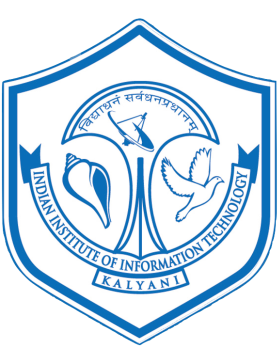Overview
The Pre-Conception and Pre-Natal Diagnostic Techniques (PCPNDT) Act, 1994, regulates the use of pre-natal diagnostic techniques to prevent their misuse for sex determination, which can lead to female feticide. A PCPNDT license is mandatory for any facility offering pre-conception and pre-natal diagnostic services, including ultrasound clinics, genetic counseling centers, and laboratories. This license ensures that such facilities operate within the legal framework set by the government, protecting the rights of unborn children and promoting ethical medical practices. Legal Corner provides expert guidance in obtaining a PCPNDT license, ensuring that your facility complies with all regulatory requirements.
Eligibility
- Registered Healthcare Facility:
The facility applying for a PCPNDT license must be a registered healthcare establishment, such as an ultrasound clinic, genetic counseling center, or diagnostic laboratory. The facility should be equipped with the necessary medical equipment and staffed by qualified professionals. - Qualified Medical Professionals:
The facility must employ qualified medical professionals, including radiologists, gynecologists, and geneticists, who are trained in the use of pre-natal diagnostic techniques. Their qualifications must meet the standards specified by the PCPNDT Act. - Compliance with Ethical Guidelines:
The facility must adhere to the ethical guidelines set by the PCPNDT Act, including the prohibition of sex determination tests and ensuring that pre-natal diagnostic techniques are used solely for medical purposes. - Infrastructure and Equipment Standards:
The facility must have the required infrastructure and equipment, such as ultrasound machines and diagnostic tools, that meet the standards prescribed by the PCPNDT Act. This includes maintaining records and ensuring the safe use of diagnostic equipment. - Documented Procedures and Protocols:
The facility must maintain detailed documentation of all procedures and protocols related to pre-natal diagnostic techniques. This includes record-keeping, patient consent forms, and compliance with the Act’s reporting requirements.
Benefits
- Legal Compliance:
Obtaining a PCPNDT license ensures that your facility complies with Indian laws, avoiding legal penalties, fines, and potential shutdowns for non-compliance with the PCPNDT Act. - Ethical Medical Practice:
A licensed facility is committed to ethical medical practices, particularly in the use of pre-natal diagnostic techniques. This enhances your facility’s reputation as a responsible and trustworthy provider of medical services. - Patient Trust and Credibility:
A PCPNDT license boosts patient confidence, as it demonstrates that your facility operates within the legal framework and prioritizes patient rights and ethical standards. This trust is crucial for building a loyal patient base. - Access to Government Programs:
Licensed facilities may be eligible to participate in government healthcare programs aimed at promoting maternal and child health. This can lead to additional revenue streams and opportunities for growth. - Protection Against Legal Liabilities:
A PCPNDT license protects your facility against legal liabilities related to the misuse of pre-natal diagnostic techniques, safeguarding your reputation and ensuring long-term operational stability.
Procedure
- Initial Consultation and Facility Assessment:
Start with a consultation to assess your facility’s readiness for licensing. This includes evaluating compliance with the PCPNDT Act’s infrastructure, equipment, and staff qualification requirements. - Document Preparation:
Prepare all necessary documents, including proof of premises, staff qualifications, equipment details, and ethical compliance records. Accurate documentation is key to a successful license application. - Application Submission:
Submit the PCPNDT license application to the appropriate health authorities along with the required documents. The application must include detailed information about the facility, its operations, and compliance with the ethical guidelines set by the PCPNDT Act. - Inspection and Verification:
Regulatory authorities will conduct an inspection of the facility to verify compliance with the PCPNDT Act and other regulatory requirements. This step is crucial to ensure that the facility meets the necessary criteria for providing ethical and legal pre-natal diagnostic services. - Issuance of PCPNDT License:
Upon successful inspection and verification, the PCPNDT license will be issued by the relevant authority, allowing your facility to legally operate and offer pre-natal diagnostic services. The license is typically valid for a specified period and must be renewed as required. - Ongoing Compliance and Renewal:
Maintain continuous compliance with the PCPNDT Act by regularly updating practices, adhering to ethical guidelines, and renewing the license as necessary. Ongoing compliance is essential to avoid legal issues and ensure uninterrupted operations.
Why Legal Corner
- Transparent and Cost-Effective Services:
Legal Corner offers competitive pricing with no hidden fees, making the licensing process accessible and affordable for healthcare facilities of all sizes, while maintaining a high standard of service. - Expertise in Healthcare Licensing:
Legal Corner has extensive experience in navigating the regulatory requirements of the PCPNDT Act. Our team ensures that your license application is handled efficiently, minimizing delays and ensuring full compliance with all legal standards. - Tailored Licensing Solutions:
Whether you’re setting up a new diagnostic facility or regularizing an existing one, Legal Corner provides customized solutions that align with your specific needs, ensuring a smooth and hassle-free licensing process. - Comprehensive Documentation Support:
We assist in the meticulous preparation and review of all necessary documents, reducing the risk of application rejection or delays. Our attention to detail ensures that your application is accurate and complete. - Proactive Communication with Authorities:
We maintain proactive communication with health regulatory authorities to address any queries or concerns promptly, ensuring that your application progresses smoothly through the licensing process.












